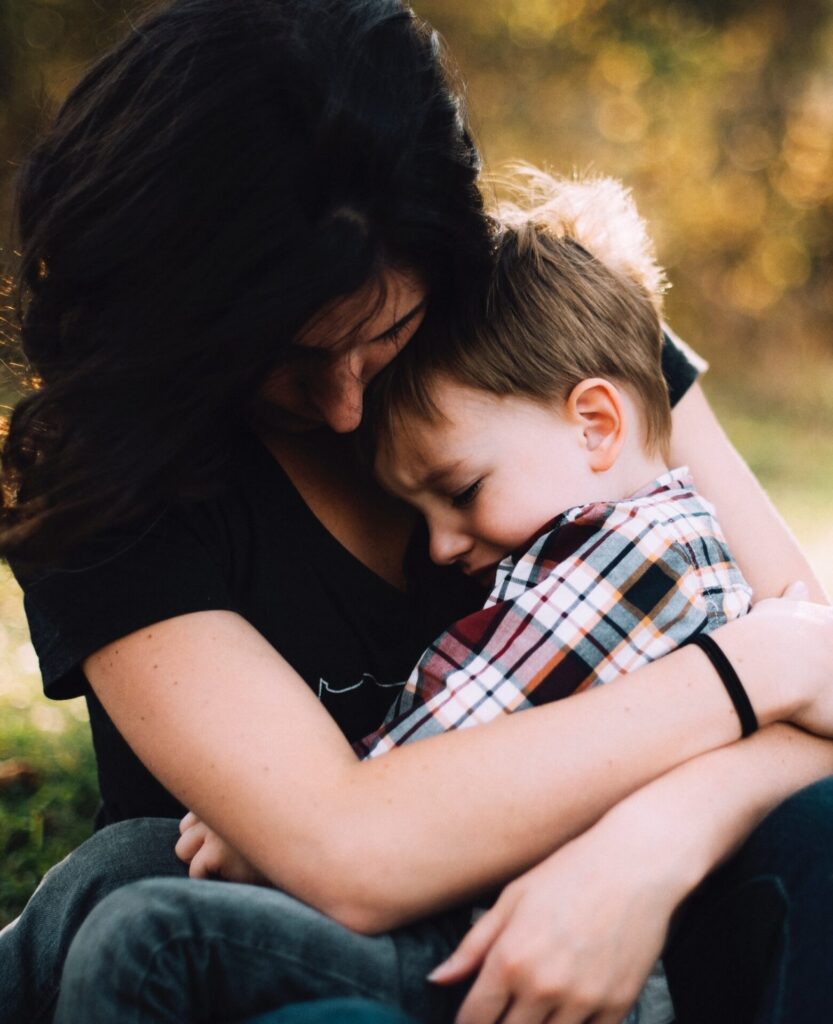Parenting is a journey filled with questions and choices. As a parent, you may have come across concepts like “positive parenting” and “gentle parenting.” Are they the same thing? Or are there subtle distinctions that might impact your approach to parenting your child? In this thorough guide, we will dig into the realm of parenting ideas to establish if good parenting is actually the same as gentle parenting.

Understanding Positive Parenting
Positive parenting is a method that focuses on supporting a child’s emotional and psychological well-being while stressing a solid and loving parent-child connection. It tries to foster good behavior via encouragement, clear communication, and constructive punishment measures. Here are some basic elements of good parenting:
1. Emotional Connection
Positive parenting stresses creating a deep emotional relationship with your kid. This relationship serves as the basis for trust and efficient communication.
2. Clear Expectations
Parents practicing good parenting create clear and age-appropriate expectations for their children. This helps youngsters learn limits and what is expected of them.
3. Positive Reinforcement
Positive reinforcement is a major element of this strategy. It entails recognizing and rewarding positive conduct to promote its repeat. Praising your child’s efforts and successes develops self-esteem.
4. Empathy and Understanding
Understanding your child’s feelings and viewpoint is crucial. Positive parenting helps parents to sympathize with their child’s emotions and experiences.
5. Effective Communication
Clear and honest communication is crucial. Positive parenting requires listening carefully to your kid, encouraging them to communicate their views and emotions.
6. Consistency
Consistency in discipline and expectations provides children with stability and predictability. Knowing what to anticipate helps them feel safe.
Now that we have an understanding on positive parenting, let’s study gentle parenting and see how it aligns or varies.
Exploring Gentle Parenting
Gentle parenting has some parallels with good parenting but also has specific aspects that distinguish it apart. This method promotes compassion, respect, and empathy in parenting. Here are the key concepts of gentle parenting:
1. Non-Violent Discipline
Gentle parenting strongly condemns any type of physical or mental violence as a tool of punishment. Instead, it advocates for compassionate, non-violent ways of punishment.
2. Respect for Autonomy
Children are recognized as people with their opinions and emotions. Gentle parenting respects a child’s liberty and encourages them to express themselves.
3. Emotional Regulation
Gentle parenting focuses a major emphasis on teaching children how to manage their emotions. Parents assist kids through tough emotions rather than repressing them.
4. No Punishments
In gentle parenting, there is a core conviction in avoiding utilizing disciplinary methods like time-outs or grounding. Instead, repercussions are natural and tied to the conduct.
5. Connection and Attachment
Similar to good parenting, gentle parenting emphasizes the parent-child bond. It stresses attachment parenting strategies to establish a strong emotional link.
Is Positive Parenting the Same as Gentle Parenting?
While good parenting and gentle parenting share similar ground in establishing a loving and respectful parent-child connection, there are contrasts worth noting:
Discipline Approach: Positive parenting may include more conventional discipline tactics, such time-outs or penalties. Gentle parenting, on the other hand, absolutely avoids punishing tactics, stressing understanding and direction.
Emphasis on Autonomy: Gentle parenting lays a larger emphasis on respecting a child’s autonomy and viewpoints, creating a feeling of independence.
Handling Emotions: Gentle parenting focuses substantially on helping children to manage their emotions in a healthy manner, frequently avoiding emotional repression.
Punishments: While both systems try to avoid harsh punishments, gentle parenting is especially adamant in its position against any punitive acts.
In conclusion, although there are parallels between good parenting and gentle parenting, they are not totally the same. Both emphasise a loving parent-child connection, good communication, and empathy, although they may vary in their methods to punishment and addressing emotions.
FAQs (Frequently Asked Questions)
Q: Is gentle parenting permissive parenting?
A: No, gentle parenting is not permissive parenting. It stresses clear limits and age-appropriate expectations while avoiding punitive tactics.
Q: Can I mix positive parenting with gentle parenting?
A: Yes, many parents blend components of both techniques, producing a balanced and caring parenting style customized to their child’s requirements.
Q: Are there any negatives to gentle parenting?
A: Gentle parenting may be more time-consuming and may need extra patience. Some say that it may not equip youngsters for the real world’s issues.
Q: Is punishment absolutely absent in gentle parenting?
A: Discipline in gentle parenting is more focused on teaching and leading rather than punishing. It seeks to help youngsters realize the repercussions of their behavior.
Q: Which strategy is best for my child?
A: The option between positive parenting and gentle parenting relies on your child’s personality, your ideals, and what works best for your family. It’s crucial to modify your parenting approach to your child’s demands.
Q: Can I swap between these parenting styles?
A: Yes, you may adjust your parenting style as required, based on your child’s age, growth, and individual circumstances.
Conclusion
In the realm of parenting, there’s no one-size-fits-all strategy. Both positive parenting and gentle parenting provide significant insights and ways to foster your child’s well-being and your connection with them. While they may vary in certain respects, the end objective is the same: developing happy, confident, and emotionally healthy children. Finding the appropriate balance that meets your family’s dynamics and your child’s requirements is the key to effective parenting.
Read also: The Ultimate Guide to Triple P- Positive Parenting Programs





